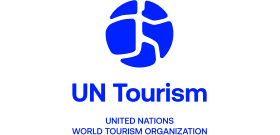 New Middle East Tourism Law Observatory to Boost Regional Cooperation and Legal Harmonization
New Middle East Tourism Law Observatory to Boost Regional Cooperation and Legal Harmonization
The World Tourism Organization (UN Tourism) is spearheading a transformative initiative with the launch of a Tourism Law Observatory for the Middle East, designed to streamline and harmonize the complex legal and regulatory landscape governing tourism across the region. This pioneering platform will serve as a centralized knowledge hub, systematically gathering, analyzing, and updating tourism-related legislation, supported by a network of legal experts and academic collaborators.
Functioning as a dynamic digital resource, the Observatory will not only provide access to comprehensive legal frameworks but also issue targeted recommendations and facilitate dialogue through conferences and seminars. This initiative is part of UN Tourism’s ambitious global strategy to establish Tourism Law Observatories across its five regions, aiming to progressively align tourism laws and regulations on an international scale.
At the heart of the Middle East Observatory’s mission lies the optimization of legal frameworks to foster a more predictable and investor-friendly environment. By encouraging regulatory harmonization, the platform seeks to reduce administrative barriers and inconsistencies that currently challenge tourism operators and governments alike. This harmonization is expected to enhance cross-border cooperation, enabling countries to share experiences, address common challenges, and collectively elevate the region’s tourism governance.
Moreover, the Observatory emphasizes the importance of inclusive governance models. It aims to promote active participation from a broad spectrum of stakeholders—including public authorities, private sector players, and civil society—throughout the regulatory process. This collaborative approach is intended to ensure that tourism policies are not only effective but also equitable and responsive to the needs of all parties involved.
The Middle East Tourism Law Observatory builds on the successful precedent set by the first such platform established for Latin America and the Caribbean. That initiative, developed in partnership with the Inter-American Development Bank and hosted in Montevideo, Uruguay, has demonstrated the value of a centralized legal resource combined with capacity-building and regional dialogue. Drawing from these lessons, the Middle East Observatory will be anchored within UN Tourism’s Regional Office for the Middle East, marking a significant milestone in the organization’s vision to replicate this model worldwide.
For Africa’s travel and tourism sectors, the emergence of this Observatory holds particular significance. The Middle East’s proximity and strong cultural and economic ties with North Africa mean that legal harmonization efforts could facilitate smoother cross-border tourism flows, enhance regional partnerships, and create new opportunities for joint tourism products and marketing initiatives. As regulatory frameworks become more aligned, African destinations connected to the Middle East stand to benefit from increased visitor mobility, clearer investment climates, and stronger collaborative governance.
In a global tourism market where legal certainty and streamlined regulations are increasingly critical, the Middle East Tourism Law Observatory represents a forward-thinking response to the challenges of fragmentation and complexity. By fostering a more coherent and cooperative legal environment, it promises to support sustainable tourism growth, attract investment, and improve the overall competitiveness of the region.
As UN Tourism continues to expand its network of Tourism Law Observatories, the Middle East initiative signals a new chapter in regional tourism governance—one that prioritizes dialogue, transparency, and shared progress. For African tourism stakeholders, staying informed about these developments will be key to leveraging emerging opportunities and strengthening ties with one of the world’s fastest-growing tourism regions.
